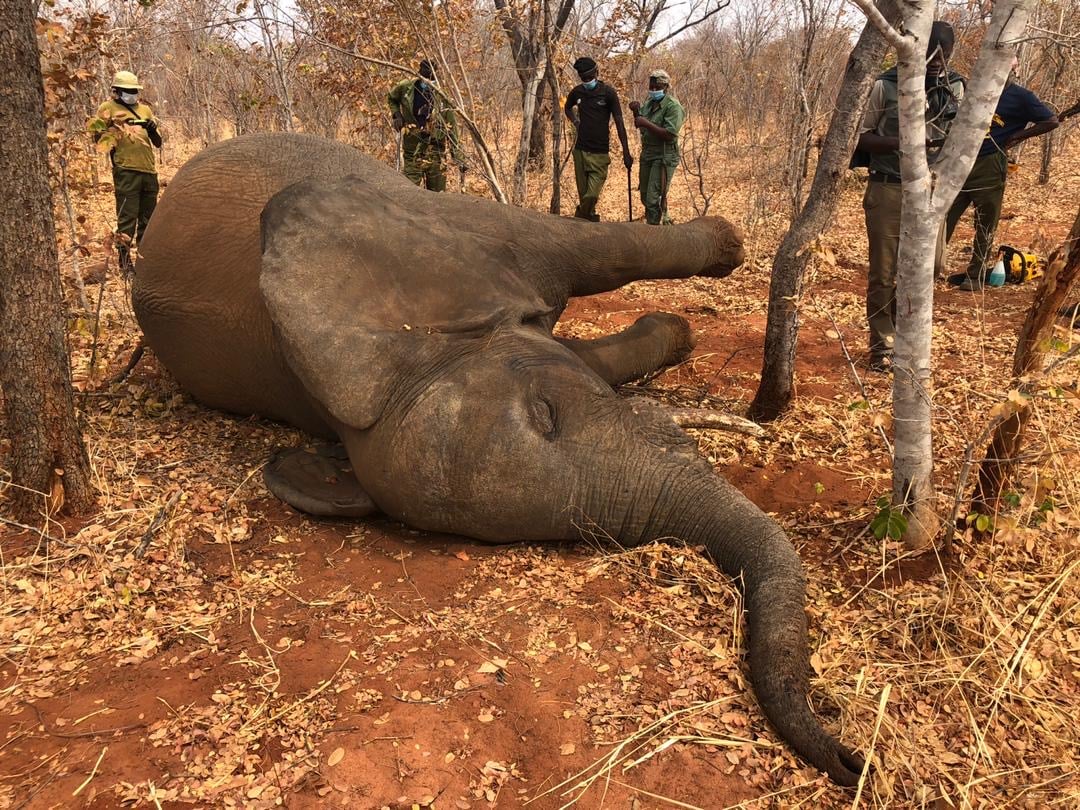Strict guidelines must be put in place to balance conservation efforts and mining in wildlife parks, conservationists have said, noting that engaging different actors involved in and impacted by these sectors can reduce risks to people and nature.
This observation comes after ‘dubious’ mining contracts have been awarded to Chinese mining companies in protected areas in Zimbabwe while inconsistent mining policies have been blamed for causing chaos in communities.
In September last year, the government granted two Chinese coal companies – Afrochine Smelting (Pvt) Limited and the Zimbabwe Zhongxin Coal Mining group, licences to start mining for coal at the Hwange National Park – home to an estimated 40 000 elephants and many endangered species.
In Matabeleland South, another company Mazinahue Syndicate was given permission to prospect for gold at the Matobo Hills World Heritage Site, a move that incensed the villagers who chased the miners away but were allegedly assaulted by anti-riot police.
Mining reportedly accounts for 12 percent of Zimbabwe’s gross domestic product and is one of the country’s highest foreign currency earners.
Animal Wildlife Foundation (AWF) Vice President of Species Conservation and Science, Philip Muruthi, acknowledged countries had to carefully consider the merits and demerits of mining in conservation areas.
He said countries must “choose, as they cannot say no to development yet could not allow mining in places that are important for biodiversity and for natural areas.”
“We have to say, ‘there is no mining here.’ For example, if you discover an important mineral on a world heritage site, my personal opinion is you leave it like that. In some areas, you don’t mine, and that’s what some countries are doing by the way. Some countries have very rich deposits of oil but are not mining yet because they are saying these areas are also important for certain species,” he said while addressing journalists on conservation science on African species recently.
However, Muruthi, said there could be solutions to conduct mining in conservancies.
“You can do infrastructure since mining is a platform because we are facing this challenge here in this region, it’s something to be discussed by the planners, the MPs in Parliament and this is where scientists can come in. If we forgo this process, we are foregoing the future development of this country and if we mine, we are putting jeopardy for the future of this country,” said the conservationist.
“Say you have discovered uranium or gold then all the dirt from mining goes into the Zambezi river, you are killing your people downstream and killing agriculture. If there’s no mining that can be done in an area, that is important for our biodiversity but my personal opinion is some mining can be done compatibly because you know there are ways you can manage.”
Muruthi highlighted mining could be done in conservancies if miners covered the land and managed the after-effects.
“Then you should go ahead and do it but the debate should not be biology only but should be biology and other economies in the country,” he noted.
Zimbabwe Parks and Wildlife Management Authority (Zimparks) spokesperson, Tinashe Farawo, added there should be co-existence between conservation and mining practices.
“I think there is a reality that we need to live with that our country is not expanding, human population is expanding, animal population is expanding. I’m saying from experience because the problems of mining were not there 50 years ago,” he said.
“If people continue to see elephants roaming freely for no benefit obviously they would think of other alternatives for survival. How much are elephants worth and this debate about mining 50 years from now I can guarantee will still come back long after some of us are gone or too old to be useful.”
Farawo noted that debate should be what benefit people are receiving from conservation.
“Are people getting value from the wildlife, as long as they are not getting value for wildlife, they think of other alternatives, so the issue is to make sure people get something from wildlife that we have, the rich resources that we must attach value to. We have all these elephants – how much are they worth, can you forego mining so you can benefit from wildlife? Can we do mining because the elephants are not benefiting us, they are killing us and those are things we must discuss,” the Zimparks spokesperson challenged.

